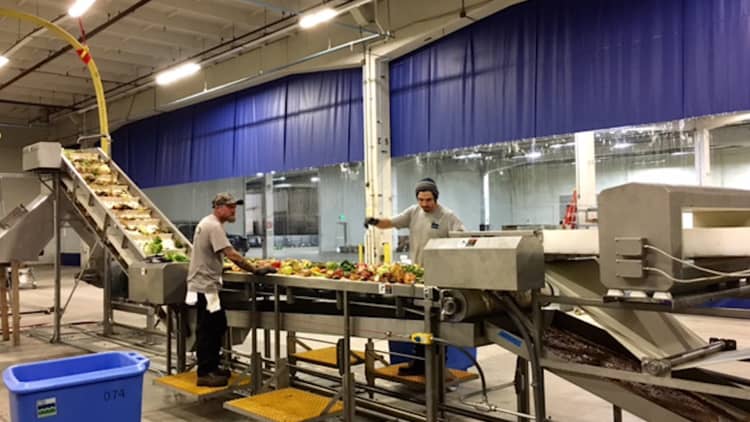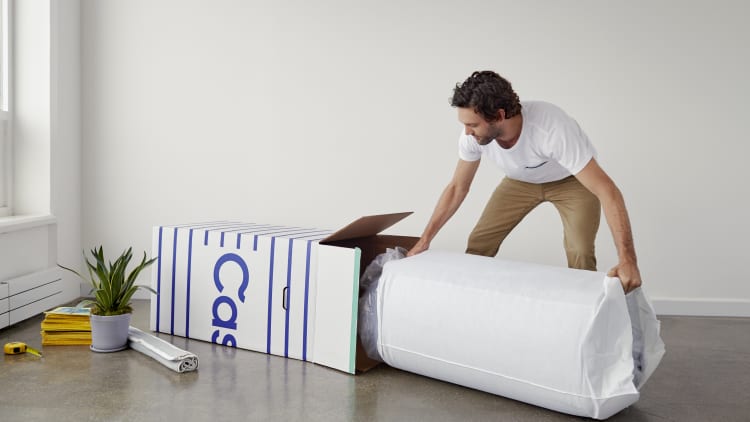Nowadays, beginning with a garage is almost cliché. I have in mind the garages of Steve Jobs and Steve Wozniak of Apple, or of William Hewlett and David Packard of HP. It's a cliche from which we didn't escape.
We originated in a garage that was initially a sort of storage room, where people abandoned forgotten objects and neglected projects. In eight days, after a lightning makeover of stain-erasing, wall-repainting, and carpet-laying, we transformed the space into a creative studio, a secret place for painting, drawing, and dreaming, a place where you bother no one and no one bothers you.
It was in this studio that I developed the vision for my company and where I worked to make that vision a reality. I bought second-hand computers, I hired my first employee, I dreamed up a plan. I'd be lying, though, if I pretended everything that lay outside my painted bubble of a garage was equally as idyllic.
Outside the bubble was Caracas, Venezuela's capital. The urban center ranks as the world's most dangerous city, filled with street violence and political tension. The country itself is also in turmoil. As we're seeing in the news, it's grappling with devastating inflation, shortages of food and consumer goods, and extreme poverty. Increasingly violent political clashes between protesters and government forces only add to the chaos.

The first time I visited Venezuela was in 2006. I was in the region of Gran Sabana, right on the border with Brazil. As soon as I arrived in the country, something inside me immediately clicked: The landscapes were breathtaking, the food was delicious, and the people were so welcoming. Since then, it's been a pleasure to go back to Venezuela and to learn even more about the country and the culture.
Starting a business there, though, wasn't quite as romantic.
In 2015, the same year I decided to found the company in Venezuela, the protests began. That January, there were massive demonstrations against food shortages. The country's economy had tanked because of falling oil prices, and people waited in lines for hours just to get a loaf of bread.
The same month, protesters gathered to rally against the city's increasing crime rate. A Forbes article in December 2016 called Venezuela "the hardest place in the world to be an entrepreneur."
Things haven't improved since. According to the World Bank's Doing Business 2017 report, Venezuela ranks lower, economically speaking, than most of us realize. The country has the lowest growth rate (-18 percent) and highest inflation rate (720 percent) of any other country in the world. Officially, it's the fourth worst country to run a business. It ranks only above Libya, Eritrea, and Somalia — and, surprisingly, even below war-torn Syria and South Sudan.
Shortly after I arrived, I already felt hindered by the lack of resources. The economic crisis had led to a brain drain, with educated professionals fleeing to find higher-paying jobs in Europe and the U.S. My cofounder and I felt discouraged as we looked for iOs developers who could create our app. As far as we knew, they had all left Caracas.
With the lack of trained developers to hire, we used the only resource we had, our own local IT team. As it turned out, this and other experiences taught us three valuable lessons:
1. Flexibility makes your business resilient
Our rigid insistence on keeping our business endeavors in Venezuela, despite its challenges, was ultimately for the best — both for the company and for me personally. Not only was it more affordable than hiring a team abroad, but it also was a vital move that helped my company and that shaped me as an entrepreneur.
From navigating the challenges in Venezuela, I learned the value of a flexible business model. When I couldn't find iOs developers, I sent my existing IT team to train in Spain to acquire the skills. Today, when a lack of resources or a nearby protest prevents the company from achieving its original goals, my cofounder and I adjust the plan to work with what we have.

Likewise, we've learned to shape our business strategy around a different set of perspectives, one that extends more broadly than my own European point of view. Rather than staying committed to a single vision, I've learned to let my product and business model evolve based on the continual flow of feedback from my local employees. That has helped me cater to a global audience.
Turning to my team and the local community for ideas and feedback has proven beneficial for my business. My employees have to think outside the box as a matter of necessity: in a country where so many ideas aren't working, they know how to push themselves to find creative alternatives.
2. Good leadership means teamwork and collaboration
Local culture also pushed me to change my leadership strategy for the better. Unlike teams I'd worked with previously in Europe and the U.S., my Venezuelan team preferred when I emphasized group effort over individual accomplishment.
Leading a team in Venezuela taught me to emphasize group collaboration, where every member was encouraged to openly share their feedback and ideas. As I grew to emphasize the importance of community dialogue as part of my business strategy, community feedback and interpersonal support became the cornerstones of my product idea.
3. True motivation comes from unexpected places
Most inspiring for me personally, and most valuable to my business endeavor, were the local Venezuelans who made up my team. These were people who felt the setbacks of limited resources and opportunities but who were educated and had big ambitions. These were people who didn't leave Venezuela to work elsewhere but who, instead, were using their brain power, optimism, and hard work to uplift their home country.

In the midst of economic and political crisis, my local team has felt a sense of ownership. The tough environment hasn't meant no ideas and no initiative. Instead, the tough environment has created people who are more committed to achieving a goal and more assertive about taking the steps they need to get there. This ultimately inspired my business — and myself — in a way that no other environment could.
Some people categorize me as a social entrepreneur and others as a tech entrepreneur. But when people ask me what I work in, my answer is that I work in the people industry. For me, setting up a company in Venezuela and working with a Venezuelan team is an opportunity to learn from people who are determined to develop their potential and build their futures.
Starting a business in Venezuela at a time of economic crisis and political turmoil was a radical, and even risky, move. But I don't think my business would have existed if it weren't for Venezuela. It's not just my company that's in Venezuela; it's also Venezuela that's in my company.
James Aschehoug is a business blogger and the co-founder of the digital storytelling start-up Uriji Jami.
Like this story? Like CNBC Make It on Facebook!
Don't miss:


